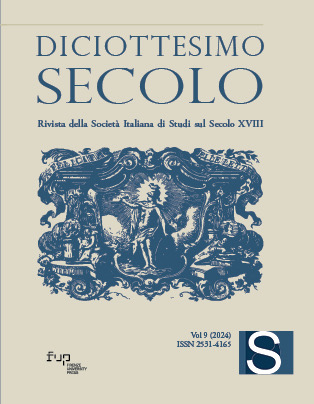Published 2024-10-07
Keywords
- Stendhal (Henri Beyle),
- Jean-Jacques Rousseau,
- Ideologues,
- Love,
- Imagination
How to Cite
Copyright (c) 2024 Marco Menin

This work is licensed under a Creative Commons Attribution 4.0 International License.
Abstract
This article aims to analyse Stendhal’s theory of love as formulated in Filosofia nova and De l’amour, with the objective of highlighting Henri Beyle’s complex attempt to reconcile two rival epistemological paradigms: the sensational-ideological tradition (particularly Condillac, Cabanis, and Destutt de Tracy) and the sentimental tradition (Rousseau). The cross-examination of the texts reveals how Stendhal’s philosophical reflection sought to refute a purely physical view of love—informed by the concept of ‘unproductive imagination’—and aimed for a middle ground between the ‘coldness of geometry’ and the ‘sentimental ardour’. Specifically, this article suggests the philosophical centrality of Rousseau’s theorization of a dynamic and subjective imagination, often overlooked in critical literature on Stendhal, which emphasizes the programmatic ‘scientific’ foundation of his theory of affectivity.
ousseau, a kind of father-master towards whom Beyle always harbored a mixture of respect and resentment. The objective of this article is to demonstrate the constructive presence of Rousseau's thought—often reduced to a counter-model—in Stendhal's explanation of love. Such an operation allows for the simultaneous highlighting of the philosophical interest in Stendhal's writings, which lies not so much in the invention of new concepts but in the specific conceptual twist he manages to subject the heterogeneous philosophical notions that intertwine in the fabric of his thought.

